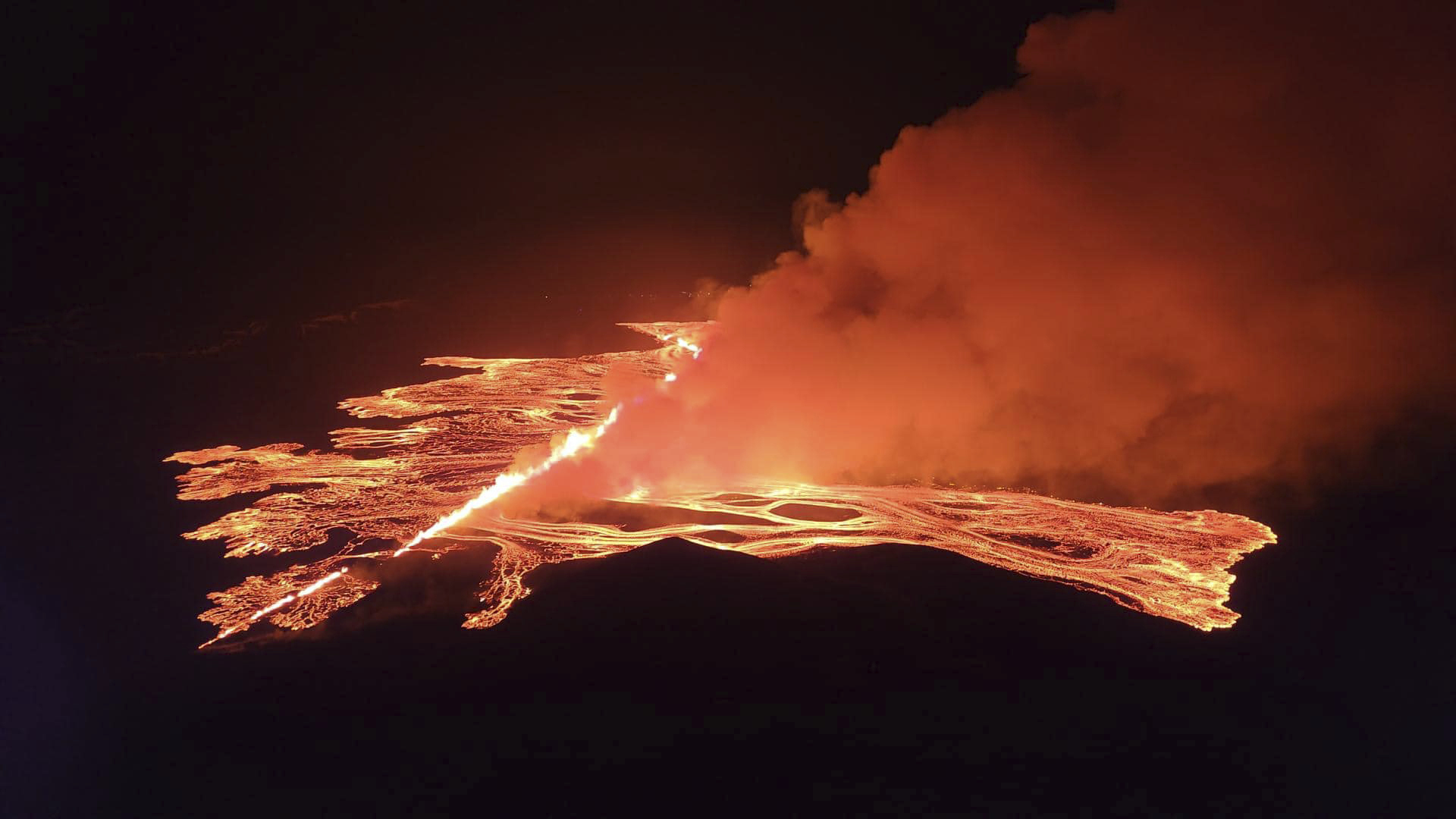Icelandic police declared a state of emergency on Saturday as lava spewed from a new volcanic fissure on the Reykjanes Peninsula, the fourth eruption to hit the area since December.
A “volcanic eruption has started between Stori-Skogfell and Hagafell on the Reykjanes Peninsula,” said a statement from the Icelandic Meteorological Office (IMO). Live video images showed glowing lava and billowing smoke.
Iceland’s Department of Civil Protection and Emergency Management announced it had sent a helicopter to narrow down the exact location of the new fissure. The authority also said the police had declared a state of emergency due to the eruption.
According to the IMO, it occurred close to the same location as a previous eruption on February 8. Lava appeared to flow south towards the dykes built to protect the fishing village Grindavik, it said.
Just after 22:00 GMT, “the southern lava front was just 200 metres [656 feet] from the barriers on the eastern side of Grindavik and moving at a rate of about one km per hour”, it added.
Hundreds of people were evacuated from the Blue Lagoon thermal spa, one of Iceland’s top tourist attractions, when the eruption began, national broadcaster RUV said.
No flight disruptions were reported at nearby Keflavik, Iceland’s main airport.
The eruption site is a few kilometres northeast of Grindavik, a coastal town of 3,800 people about 50km (30 miles) southwest of Iceland’s capital, Reykjavik, that was evacuated before the initial eruption in December. A few residents who had returned to their homes were evacuated again on Saturday.
Grindavik was evacuated in November when the Svartsengi volcanic system awakened after almost 800 years with a series of earthquakes that opened large cracks in the ground north of the town.
The volcano eventually erupted on December 18, sending lava flowing away from Grindavik. A second eruption that began on January 14 sent lava towards the town. Defensive walls that had been bolstered after the first eruption stopped some of the flow, but several buildings were consumed by the lava.
Both eruptions lasted only a matter of days. A third eruption began February 8. It petered out within hours, but not before a river of lava engulfed a pipeline, cutting off heat and hot water to thousands of people.
RUV quoted geophysicist Magnus Tumi Gudmundsson as saying that the latest eruption is the most powerful so far. The IMO said some of the lava was flowing towards the defensive barriers around Grindavik.
Iceland, which sits above a volcanic hot spot in the North Atlantic, sees regular eruptions and is highly experienced at dealing with them. The most disruptive in recent times was the 2010 eruption of the Eyjafjallajokull volcano, which spewed huge clouds of ash into the atmosphere and led to widespread airspace closures over Europe.
No confirmed deaths have been reported from any of the recent eruptions, but a workman was declared missing after falling into a fissure opened by the volcano.
Check out our Latest News and Follow us at Facebook
Original Source

